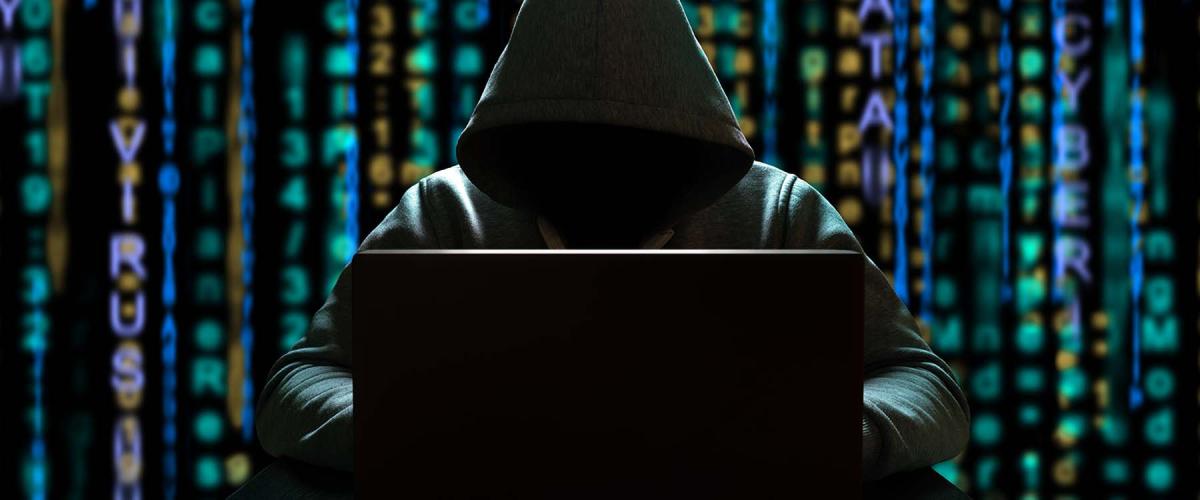In the digital age, safeguarding liberty requires relentless vigilance. To defend the principles of the liberal democratic system and international collaboration, western nations must restrain the capacity of Chinese and Russian cyber units to manipulate social media.1 Looking into the future, estimates suggest a geopolitical landscape delineated by ideological divides, with the United States, China, and Russia poised to lead coalitions rooted in democratic and authoritarian principles, respectively.2 U.S. social media platforms have emerged as significant actors in this conflict. However, the current unrestricted access to these platforms has enabled Chinese and Russian agents to effectively undermine democratic standards through them.
In the chessboard of global digital policy, the United States and its partners must limit operatives from China and Russia from participating on U.S. social media networks. The current laissez-faire strategy in governing social media is proving inadequate, as citizens increasingly find themselves governed more by the policies of private corporations than by laws enacted by their elected representatives.3 Moving forward, laws passed by elected officials must work in tandem with rules set by private entities.
Challenges Posed by Information Warfare
Democracy is under siege from both foreign and domestic adversaries, though the discourse often gravitates toward foreign threats. Within social media, foreign threats pose distinct challenges because of the differing rights of citizens and noncitizens, and the varying degrees of protection under the First Amendment of the U.S. Constitution.4 These threats include foreign influence campaigns and systematic manipulation of social media. Here, the concept of information warfare encompasses the strategic manipulation of social media to advance certain campaigns.
Allegations have surfaced implicating both China and Russia in financially backing political entities and aspirants covertly within democratic states.5 Carl von Clausewitz famously asserted “war is a continuation of politics by other means.”6 Strategists from China and Russia have adeptly inverted Clausewitz’s maxim, adopting the stance that information warfare serves as a potent, economical instrument for waging conflict through political avenues.7 Moreover, numerous authoritarian regimes, including Russia and China, exploit U.S. social media platforms for foreign influence campaigns.
Recommending a Framework for Cross-Border Regulation
First, a global coalition of democratic nations should be formed to counter information warfare from Russia and China and to develop regulations to protect freedom of speech for citizens of member nations on social media. Second, a rule should prohibit agents from China and Russia from operating accounts on regulated social media platforms, with exceptions for benign state agents. The framework would also call for a disclaimer to inform citizens within coalition countries of election-centric communications by individuals hailing from nondemocratic regimes. Third, this strategy would advocate for a registration protocol mandating social media participants officially record their accounts and disclose their national affiliations, which would be verified by governments of coalition member states. This arrangement should be coupled with rigorous safeguarding methods for informational privacy and data protection, complemented by a provision that exempts users with private profiles from the mandatory registration requirement. Fourth, it should enhance public education and awareness about information warfare, propaganda, and misinformation. This could involve collaboration between governments, educational institutions, and media organizations to develop curricula and public awareness campaigns.
In addition, social media platforms should be encouraged or required to make their algorithms more robust, making it harder for malicious actors to manipulate these algorithms for information warfare. Fifth, platforms should promote using fact-checking and verification services to combat misinformation and propaganda. This could involve supporting independent fact-checkers, as well as integrating fact-checking tools into social media platforms. Sixth, the should invest in research and development to improve the understanding of information warfare and develop new ways to protect against it. This could involve funding academic research, supporting private-sector innovation, or establishing government research programs.
In recent times, the escalating presence of detrimental material on digital platforms has ignited calls for more robust governmental oversight and comprehensive reforms of internal policies by social media corporations.8 This approach advocates targeting dangerous speakers rather than harmful speech itself, such as enacting laws to prevent agents from China and Russia from founding or managing profiles on social media platforms subject that are not subject to regulation. A contentious element of this proposal is the introduction of a social media registration system. While some may perceive this as a dystopian measure, such a system arguably could help mitigate the issue of government surveillance. The envisioned registration system would seek to discern and obstruct the operation of fabricated profiles established by international operatives.9 Both China and Russia employ fabricated online profiles as significant instruments within their tactical repertoire.To counter this, the recommended framework could advocate for an exhaustive screening mechanism during the creation of user accounts, administered by pertinent governmental authorities, to ensure the veracity of the data about the user’s national identity. This would call for a coalition of democracies to implement an effective registration system.
U.S. adversaries, notably Russia and China, possess the capability to generate fake social media accounts with greater speed and cost-efficiency than the rate at which these social media companies can identify and neutralize them. Currently, millions of fraudulent accounts evade detection on platforms such as Facebook. The proposed registration system could effectively prevent foreign cyber forces from creating false user accounts, thereby increasing the cost and effort of the attackers. However, potential and perhaps significant violations of user privacy are a concern. In practice, a meticulously crafted and effectively executed registration system for social media could bolster the integrity of informational privacy as well as fortify data security measures.10 Nevertheless, the envisioned system may inadvertently dissuade certain users, especially those skeptical of the government, and thereby dampen free expression. To overcome this, the proposal would allow private profiles to bypass the registration mandate, enabling private but not public communication. A careful public communication strategy could further minimize the chilling effect during the implementation of the registration system.
Assessing the Trade-offs and Payoffs
Washington’s primary responses to information warfare from Beijing and Moscow have been inadequate sanctions and laws governing political ads.11 Despite criminal charges for cyber-espionage, no charges have been brought for the exploitation of social media for information warfare. Sanctions against Russian entities and individuals have failed to deter information warfare, with activity on social media by Russia’s Internet Research Agency (IRA) intensifying post-sanctions. Special Counsel Robert Mueller indicted 26 Russian individuals and three entities for meddling in U.S. elections.The 2016 U.S. election saw Russia markedly ramp up efforts to destabilize U.S. democratic processes, with a tri-agency intelligence report prepared by the Central Intelligence Agency (CIA), the Federal Bureau of Investigation (FBI), and the National Security Agency (NSA) highlighting the unprecedented directness and scale of interference. However, most defendants remain at large, outside U.S. jurisdiction. Despite cyber intrusions by Russia into western Europe, neither the E.U. nor its member states have imposed penalties for these actions. The United States did impose sanctions, but these have not deterred Russia. While multilateral sanctions involving European allies might be more effective, it is unlikely they would outweigh the perceived benefits of information warfare for Russia.
Proposed legislation in Congress, such as the Banning Microtargeted Political Ads Act and the Honest Ads Act, aims to regulate paid political ads on social media.However, the focus on paid ads overlooks the larger problem of organic posts by organizations such as the Internet Research Agency (IRA), which generated millions of organic posts—far surpassing their paid ads. The proposed international governance system should include a ban on speech by agents of the Chinese and Russian governments on social media and a disclaimer regime for election-related speech by non-Alliance state nationals.12 Disclaimers, similar to cigarette warning labels, could effectively raise awareness about information warfare.
However, a disclaimer-centric approach alone is insufficient. Consequently, assessing the disclaimer-plus-ban strategy requires a two-level analytical approach.13 The initial level is tactical: the extent to which bans and disclaimers can diminish Chinese and Russian cyber tactics hinges on the robustness of the registration system and its antievasion protocols. The second level is strategic: How much would a successful defense against information warfare contribute to halting or reversing democratic decay? Each level of analysis deserves separate consideration.
Diminishing the Impact of Information Warfare
Enforcing restrictions on operatives from China and Russia on monitored social media networks may serve as a strategic counter to the information warfare threats they pose. However, the costs of such a ban, including implementing a registration system, must be balanced against its benefits.
An international governance framework, including a social media registration system, could help eliminate fraudulent accounts. Despite efforts by social media firms, the current system allows many such accounts. However, implementation costs and challenges need careful evaluation. The proposed international social media registration system, while intricate, is achievable with existing national ID systems and databases.14 This system could filter out nefarious actors during the initial account registration phase, potentially easing the burden on content moderators.
However, some platforms would require operational changes, particularly in attaching disclaimers to election-related speech. The regulatory burden would be confined to platforms with 50 million registered users, ensuring smaller firms are not disproportionately burdened.15 The proposed social media registration system would require users to disclose more personal information, raising privacy concerns. However, tech companies already amass vast amounts of user data. Existing data collection practices mean the additional disclosure would minimally impact user privacy. The system would include safeguards to prevent misuse of information by government agencies. Users concerned about privacy could opt for private accounts, and undocumented immigrants could register without fear of their information being used for immigration enforcement. Formalizing the system could make the rules governing information disclosure more transparent, preserving the status quo regarding access to public communications.
An International Governing System for Information Warfare
Critics argue the proposed system could lead to significant invasions of user privacy and impose considerable administrative burdens and costs on social media companies.16 While a ban on Chinese and Russian agents may seem drastic, a disclosure-and-disclaimer regime alone would not effectively shift the attack-defense balance in favor of the defenders. The international regulatory framework promises dividends that extend well beyond this singular concern. Despite the hurdles and financial implications of implementing a ban on operatives from China and Russia, the benefits of such a prohibition, and the strengthening of human rights and essential liberties, significantly eclipses these expenditures.
1. David L. Sloss, The Tyrants on Twitter: Protecting Democracies from Information Warfare (Stanford, CA: Stanford University Press, 2022), 17.
2. Paul J. Bolt and Sharyl N. Cross, China, Russia, and Twenty-First Century Global Geopolitics (UK: Oxford University Press, 2018), 216–20.
3. Sloss, The Tyrants on Twitter, 19.
4. Sloss, 26.
5. Sloss, 27.
6. Carl Von Clausewitz, On War (Princeton, NJ: Princeton University Press, 1981), 87.
7. Sloss, The Tyrants on Twitter, 27.
8. Jack M. Balkin, “To Reform Social Media, Reform Informational Capitalism,” in Social Media, Freedom of Speech, and the Future of Our Democracy (UK: Oxford University Press, 2022), 233–54.
9. Sloss, The Tyrants on Twitter, 29–33.
10. A recent Supreme Court decision arguably makes the registration system more vulnerable to a constitutional challenge. See, Americans for Prosperity Foundation v. Bonta, 141 S. Ct. 2373 (2021).
11. Sloss, The Tyrants on Twitter, 191–92.
12. Sloss, 194.
13. Sloss, 196.
14. Magdalena Krajewska, Documenting Americans: A Political History of National ID Proposals in the United States (England: Cambridge University Press, 2017), 2–3.
15. Sloss, The Tyrants on Twitter, 209–10.
16. Sloss, 211.






